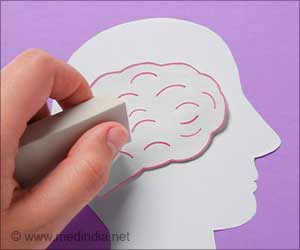High-fat diet in combination with vitamin D deficiency cause metabolic syndrome.
Highlights
- Metabolic syndrome is defined by a group of risk factors that lead to diabetes and heart disease.
- High-fat diet can trigger a metabolic syndrome.
- Metabolic syndrome linked to vitamin D deficiency, which affects 30-60% of the world’s population.
Diet high in fat or carbohydrate is the main cause of metabolic syndrome. Study has shown that a high fat diet affects the balance between good and bad bacteria in the gut; raising the blood sugar levels in mice. Vitamin D deficiency aggravates the gut flora imbalance contributing to metabolic syndrome.
Lack of vitamin D lowers the production of defensins. Defensins are anti-microbial molecules which are essential to maintain a healthy gut flora.
An oral form of synthetic defensin was found to recover gut bacteria balance, decrease sugar levels and improve fatty liver condition.
Vitamin D supplements help improve metabolic syndrome in mice. The next step would be to test the results in humans.
He remains optimistic that the results of their study can be confirmed in humans. "We are planning a clinical study to confirm the link of vitamin D deficiency with gut bacteria disruption, and its association with metabolic syndrome," says Han.
- It affects nearly a quarter of the world’s adult population.
- Metabolic syndrome sufferers have excess fat in their liver.
- It affects about 23% of adults.
- Waist circumference of 40 inches or above in men and 35 inches or above in women.
- Triglyceride levels of 150 milligrams per deciliter of blood (mg/dL) or greater.
- High density cholesterol level of less than 40 mg/dL in men or less than 50 mg/dL in women.
- Systolic blood pressure of 130 millimeters of mercury (mm Hg) or greater, or diastolic blood pressure (bottom number) of 85 mm Hg or greater.
- Fasting glucose of 100 mg/dL or greater.
- Obesity
- Lack of exercise
- High blood sugar levels
- Risk increases as you get older
- Asian and African-Carribean people may be at a higher risk
- Cardiovascular disease, polycystic ovarian syndrome or non-alcoholic fatty liver disease.
- Vitamin D is essential for overall health and strong healthy bones, helps fight illness.
- Your body can make vitamin D from sunlight; vitamin D can also be obtained from diet and supplements.
- Severe vitamin D deficiency causes rickets (softening of bones) in children and osteomalacia in adults.
- In the US and Europe, >40% of the adult population greater than 50 years of age is vitamin D deficient.
- Loss excess weight
- Exercise regularly
- Eat healthy to keep your blood pressure, lipids and sugar levels under control
- Quit smoking and cut down on alcohol.
- Danmei Su, Yuanyang Nie, Airu Zhu, Zishuo Chen, Pengfei Wu, Li Zhang, Mei Luo, Qun Sun, Linbi Cai, Yuchen Lai, Zhixiong Xiao, Zhongping Duan, Sujun Zheng, Guihui Wu, Richard Hu, Hidekazu Tsukamoto, Aurelia Lugea, Zhenqui Liu, Stephen J. Pandol, Yuan-Ping Han. Vitamin D Signaling Through Induction of Paneth Cell Defensins Maintains Gut Microbiota and Improves Metabolic Disorders and Hepatic Steatosis in Animal Models; Frontiers in Physiology; (2016) DOI:10.3389/fphys.2016.00498
- About Metabolic Syndrome - (https://www.heart.org/HEARTORG/Conditions/More/MetabolicSyndrome/About-Metabolic-Syndrome_UCM_301920_Article.jsp)
- Staying Healthy with HIV - (https://www.aids.gov/hiv-aids-basics/staying-healthy-with-hiv-aids/potential-related-health-problems/cardiovascular-health/)
- About Vitamin D - (http://www.vitamindcouncil.org/about-vitamin-d/what-is-vitamin-d/)
- Metabolic Syndrome - Introduction - (http://www.nhs.uk/Conditions/metabolic-syndrome/Pages/Introduction.aspx)
Source-Medindia
















